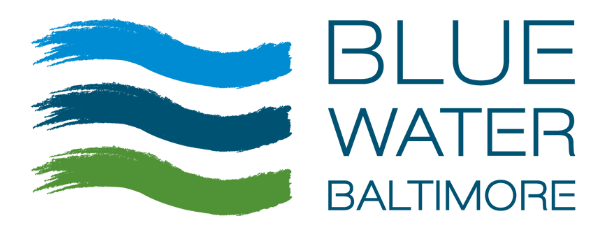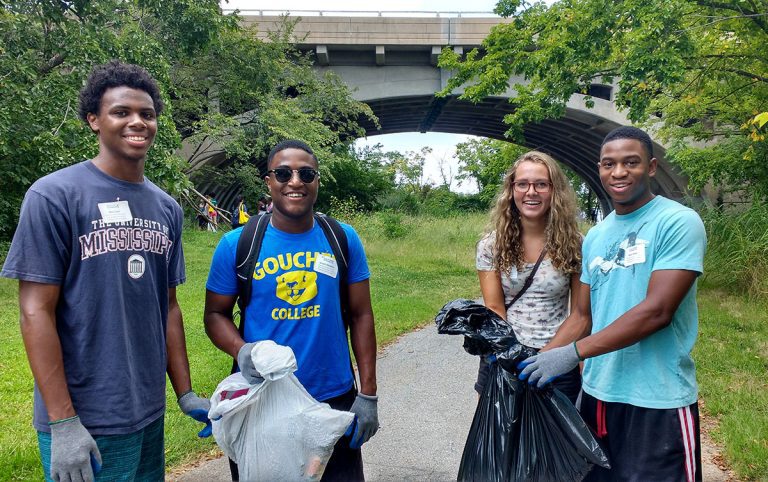Enough is Enough: Citizens Tell Maryland To Get Serious About Clean Water
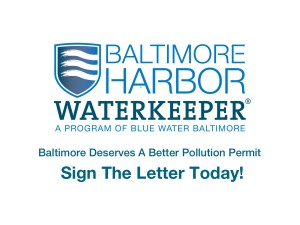 This month I had the honor of participating in one of the most inspiring events I’ve experienced since I started my position as Baltimore Harbor Waterkeeper: the public hearing on the draft Baltimore City stormwater (aka MS4) permit. You might be wondering what the heck is so inspiring about a pollution permit hearing? I’ll tell you what—a room filled to the brim with citizens from not only Baltimore but all over the State who came together to tell the Maryland Department of the Environment (MDE) that we are fed up with polluted, unsafe waterways and it’s time to get serious about clean water.
This month I had the honor of participating in one of the most inspiring events I’ve experienced since I started my position as Baltimore Harbor Waterkeeper: the public hearing on the draft Baltimore City stormwater (aka MS4) permit. You might be wondering what the heck is so inspiring about a pollution permit hearing? I’ll tell you what—a room filled to the brim with citizens from not only Baltimore but all over the State who came together to tell the Maryland Department of the Environment (MDE) that we are fed up with polluted, unsafe waterways and it’s time to get serious about clean water.
The Baltimore City stormwater pollution permit is meant to regulate the pollution that is discharging directly from Baltimore City’s stormwater pipes into our rivers, streams and Harbor. Unfortunately, this permit lacks limits on the amount of pollution that is allowed to go into our waterways and also lacks enforceable deadlines by which these limits must be reached. The public hearing gave citizens the opportunity to say so.
Citizens and advocates, including me and David Flores, Blue Water Baltimore’s Water Quality Manager, presented a unified voice for clean water to MDE through our testimony at the hearing. It was so encouraging and inspiring to see how effective it can be when citizens and advocates come together with a strong, consistent voice. Here are some highlights:
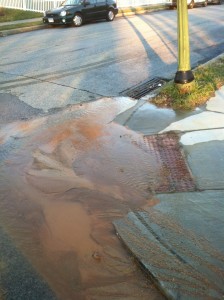
• David testified about the scientific data which confirms the dire state of Baltimore’s waterways due to pollution from sewage overflows and stormwater runoff (both regulated under the stormwater permit), including in our local streams such as Gwynns Falls and Jones Falls. He discussed the inadequate water quality monitoring requirements in the draft permit and asked MDE to “please hold us accountable to our pollution.”
• Andy Galli, the Maryland Program Coordinator with Clean Water Action (and one of Blue Water Baltimore’s board members) asked MDE to issue a permit that we are sure will lead to clean water, not just hopeful that it will. We cannot afford to go through another five-year permit term of being merely hopeful, only to find out that the permit did not actually work to clean up the water. Let’s instead make the permit terms tight enough that we are sure it will result in real improvements.
• Laurie Schwartz, President of Waterfront Partnership, asked MDE for clean water standards, schedules and deadlines in the permit and a website for the public to obtain important documents related to the permit. She reminded MDE of a critical point that is too often forgotten: “It’s our water, our money, our government.”
• Judd Anderson, Director of Youth Rowing at the Baltimore Rowing Club, spoke of the children he takes out on the Middle Branch and having to explain to them why there is trash and wastewater debris everywhere from the stormwater system–including dangerous items such as hypodermic needles. He reminded MDE that other cities have successfully cleaned up their waterways enough to hold triathlons. He asked MDE “Why not Baltimore?”
I used the hearing as an opportunity to bridge the gap between the abstract aspects of a permit and the reality of what is actually happening in the water. I spoke of the disturbing pollution events that I have witnessed in the short six months I’ve been the Baltimore Harbor Waterkeeper: fish kills, sewage spills, and algal blooms are each directly connected to the pollution coming out of the stormwater system. That pollution is supposed to be regulated by this permit, which makes a strong permit imperative to the health and safety of Baltimore’s residents.
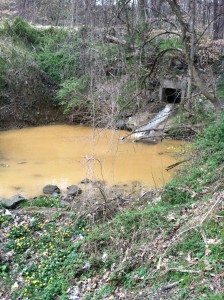
I and others also spoke of the importance of this pollution permit to cleaning up the Chesapeake Bay. An enormous amount of resources (both time and money) have gone into developing the latest clean-up plan for the Bay—the Chesapeake Bay Total Maximum Daily Load (TMDL or pollution diet)—with the intention of making it different than all the past Chesapeake Bay Agreements and other plans. These past plans utilized millions of taxpayer dollars, and then resulted in no noticeable changes to water quality. The stormwater permits, including this one for Baltimore City, which will actually serve as a template for other permits across the State, are the only way to make this latest plan enforceable and actually lead to real improvements in water quality. If this permit remains weak and watered down, then all that well-intentioned time and money going into the Bay TMDL has been utterly wasted.
This hearing was a mechanism for citizens’ voices to be heard, and it would not have been possible without the federal Clean Water Act. This law provides us with a public participation process around every water pollution permit that is issued, as well as the ability for citizens to bring enforcement actions when polluters are violating their permits. This year is the 40th anniversary of the Clean Water Act, and I am thankful for the voice that it provides to me and my fellow citizens on an issue that is near and dear to all of us: clean water for us and our children to use and enjoy for many years to come.
Even though the hearing is over, you can still tell MDE that you care about clean water and a strong and enforceable Baltimore City stormwater permit. The Baltimore Harbor Waterkeeper is providing detailed technical and legal comments, but it is important that MDE also hear from you! So we have drafted a letter for you to sign, telling MDE to take a stand on behalf of your environment and your health. Tell MDE that you find this woefully inadequate draft permit unacceptable, and that you want a permit that will result in real improvements to our waterways.
Sign our public comment letter online by September 19th at 5pm! We will collect all the signatures and submit them on your behalf to MDE.
